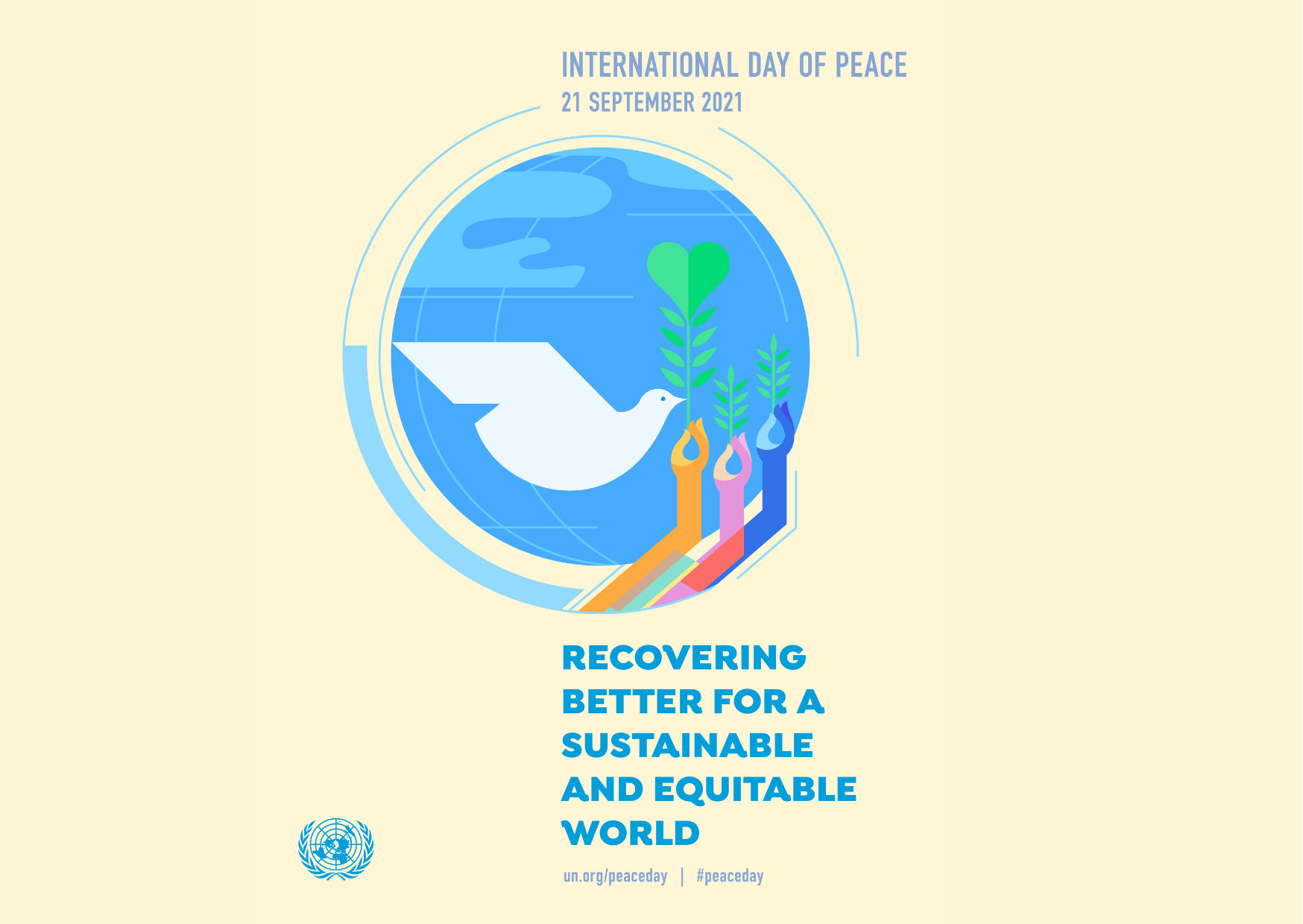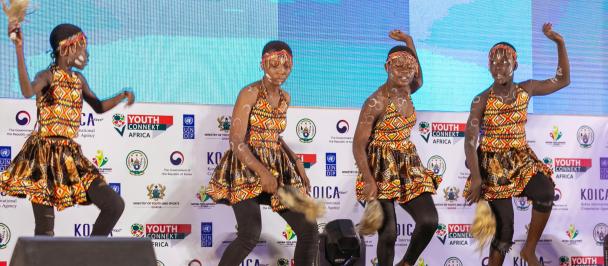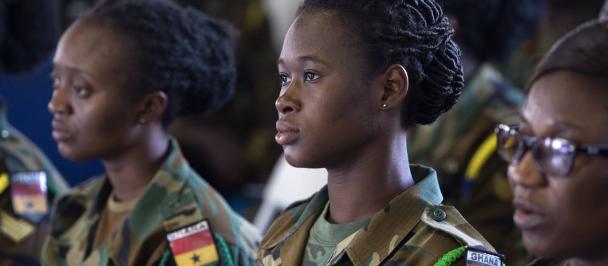On the International Day of Peace, we are reminded of the importance of peace amidst growing threats and insecurity. This year’s special theme on, “recovering better for an equitable and sustainable world” is apt as the world continues to heal from the COVID-19 global pandemic.
Promoting the Sustainable Development Goal (SDG) 16 on peaceful, inclusive, and just societies means that we must ensure that those hit hardest by the COVID pandemic are not left behind. People affected by conflict and crisis are particularly vulnerable and least able to cope and recover from the health and economic impacts of the pandemic.
Ensuring more equal access to health care and vaccines offers a pathway to building back stronger for a more equitable and sustainable world. While the World Health Organization (WHO) recommends that countries need to vaccinate at least 40% of people by the end of 2021, and at least 70% by the first half of 2022, no African country is on track. Data provided by UNDP COVID-19 Data Futures Platform shows that 1 in 2 people (60.18%) are vaccinated in high income countries but only 1 in 33 in low income countries have received vaccines (3.07%). Strengthening the health systems that power development will play a key role in building resilience to the instability created by current and future shocks.
Beyond health, COVID-19 has already had a negative impact on social cohesion and peace. In Ghana, a survey conducted by the Ghana Statistical Service in partnership with the UNDP in 2020 on the impact of COVID-19, shows a rise in crime, domestic violence, prices, and business closures. There has also been a surge in stigma, domestic violence, crime, discrimination, and inequity globally.
This year’s theme for the International Peace Day is a call to action for us to make peace with one another and with nature to build forward stronger and greener.
First, we must work in solidarity to build a more inclusive, equitable, and peaceful society. Now more than ever, we must strengthen our social bonds within and between communities and groups. We must strengthen our collaboration to find new solutions through dialogue and co-create our common future.
In Ghana, institutions such as the National Peace Council, the National Commission on Small Arms and Light Weapons, the National Commission for Civic Education and the Ghana Police Service contribute to a culture of peace, democratic consolidation, and respect for the rule of law. These are important assets to Ghana’s social and economic advancement that need to be nurtured.
Making peace with each other also means being deliberate about the involvement and participation of the youth in decision-making in peace processes at all levels. Initiatives such as UNDP’s 16x16, testifies to the positive impact young women and men can make in advancing peace.
We must also actively ensure the participation of women in peace processes at all levels and the protection, and promotion of the rights of women and girls. Building on the United Nations Security Council Resolution (UNSCR 1325), Ghana has developed its 2nd National Action Plan on Women, Peace and Security. Implementing this plan would lead to more women playing a role in peacebuilding and conflict.
Second, as citizens we hold the power to live in peace with nature, on whose existence we depend. By re-orienting our social norms and values towards sustainable consumption and production as outlined in the 2020 UNDP Human Development Report, we will be able to expand human freedoms while easing pressure on the planet. A green and sustainable global economy that produces jobs, reduces emissions, and builds resilience to climate impacts, will require a new generation of citizens, who are committed to restoring our degraded ecosystems and living at peace with nature.
This peace day, it is time to commit to advancing an inclusive and sustainable recovery from COVID-19, a recovery that places both people and nature at the centre for peace and lasting prosperity.
If we invest in young people, advocate for more equitable distribution of vaccines and mobilize communities, we will be able to build peace and reverse environmental degradation to accelerate the pace of our recovery. As individuals and as communities, let us uphold the values that protect the rights of all for a peaceful and just society.

 Locations
Locations



